At-large Concord City Council: Langley extension, stipends for volunteers among issues where candidates differ
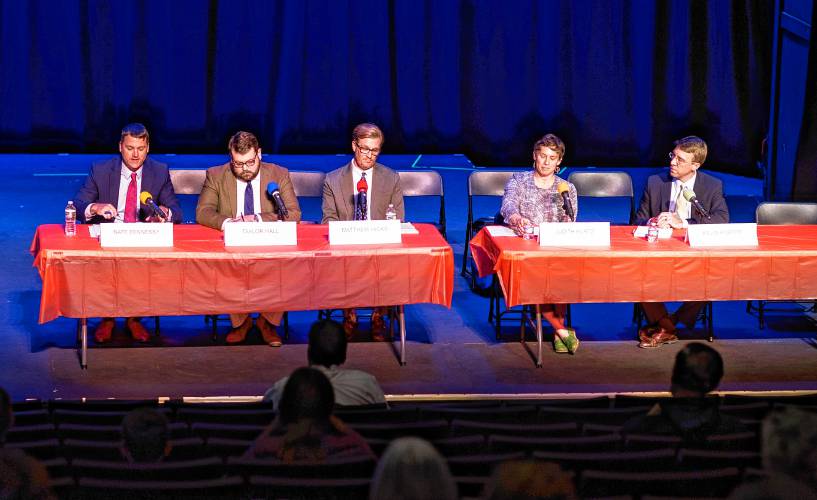
The candidates for the At-Large seats on the Concord City Council are from left: Nathan Fennessy, Taylor Hall, Matthew Hicks, Judith Kurtz and Kevin Porter. GEOFF FORESTER / Monitor staff
|
Published: 10-27-2023 7:32 PM
Modified: 10-30-2023 2:23 PM |
The five candidates vying for two city-wide seats on the City Council all promised to bring passion and a desire to improve Concord if elected to the 15-member body.
Their ideas, background and experience give city voters a fruitful choice on Nov. 7.
The five candidates answered questions about pressing topics in the community, like homelessness, taxes, and development during a community forum hosted by the Monitor this week. The discussion was recorded by Concord TV and can be viewed online.
One issue that drew separation from the candidates was a topic that has been discussed in Concord for years – the possible extension of the Langley Parkway from Concord Hospital past Auburn Street and Bishop Brady High School.
Matthew Hicks, a Concord native and member of the Planning Board, said he’d be interested in studying the project again. He said the new road would increase response times to the hospital from different parts of the city, which could make the difference between “life or death.”
“When we talk about this, we have to have a conversation with all of the wards in the city of Concord and have input from all of them because this is not a one-neighborhood issue,” he said. “This is a city issue.”
Judith Kurtz disagreed that the parkway was a matter of life or death. She maintained that the best way to keep people safe is to get first responders on the scene of an emergency as quickly as possible.
“If we are concerned about the folks on the north side who are having trouble, what we need to do is return the fire station and first responders to that side of town,” she said. “Langley Parkway is not a solution to any existing problem.”
Article continues after...
Yesterday's Most Read Articles
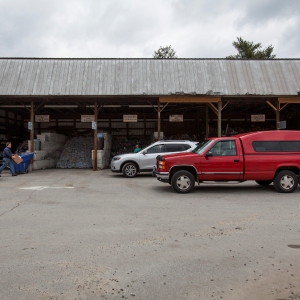 Hopkinton tries to nab out-of-town trash bandits
Hopkinton tries to nab out-of-town trash bandits
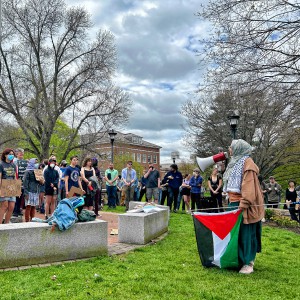 UNH faculty and students call on university police chief to resign following his alleged assault on a student
UNH faculty and students call on university police chief to resign following his alleged assault on a student
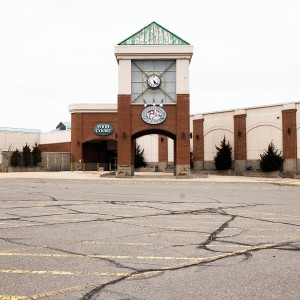 Steeplegate project to reopen to public comment as developer seeks to reduce required parking
Steeplegate project to reopen to public comment as developer seeks to reduce required parking
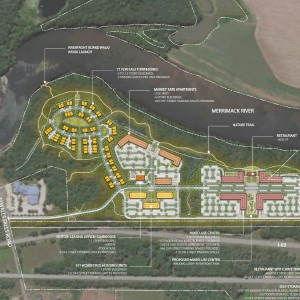 Monitor Way developer seeks $4.67 million from city for proposed new road
Monitor Way developer seeks $4.67 million from city for proposed new road
 Northeast Coffee Festival comes to Concord this weekend
Northeast Coffee Festival comes to Concord this weekend
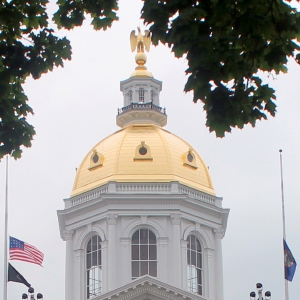 NH Senate panel frowns on bill to ease vehicle inspection requirements
NH Senate panel frowns on bill to ease vehicle inspection requirements
Kevin Porter’s wife is a physician at Concord Hospital and said the issue is near and dear to his heart.
He agreed with Kurtz and said the issue remains a good example of civic engagement where people educated themselves and spoke to the council directly before the parkway was removed from the city’s capital improvement plans.
Nathan Fennessy, the incumbent running for re-election, said he sees the issue through the lens of development.
At the east end of the proposed parkway, is hundreds of acres of undeveloped land, which Fennessy called “prime property.”
“As most of you can probably see, those properties have not been developed now for a number of years because the property owners are unsure if we are going to move forward with Langley Parkway or not,” he said. “I think we have to have a conversation and make a definitive decision, otherwise the eastern end of what may or may not be Langley Parkway is never going to get developed.”
Taylor Hall, who has lived in Concord for five years, was not familiar with the project.
Hicks cited his experiences as a member of the Planning Board, a state Representative, the headmaster of the Shaker Road School and a volunteer for other city boards and nonprofits as assets that will support him to serve the city, he said. As an educator, he takes a collaborative approach to building consensus.
“I know I would do a good job on the City Council. I think that’s been shown in other areas,” Hicks said. “If I have the opportunity I would be happy to work with any of the folks up here and I’m looking forward to that opportunity.”
When Kurtz first filed for the position, she thought of her perspective as a woman, a mother and someone who chose to live in Concord for all the city has to offer, she said. Service as vice chair of the Concord Greenspace Coalition is only one example of her efforts to immerse herself in the city and its challenges. Her experience as an educator and a facilitator has trained her to listen, ask questions and make changes that benefit all.
“I will bring to the City Council all of my experience as an educator, as a facilitator and really seek to build consensus and listen and then act to make change that benefits all residents of Concord,” Kurtz said.
Porter said his work at a national housing agency based in the city gives him an external and internal perception of what is working in Concord and what isn’t, he said. He said he has seen how local government can be innovative, flexible and responsible and he will bring those lessons to the city council.
“I think housing and energy are so critical right now, both nationally and locally,” Porter said. “I see an opportunity to take my 20 years of experience and training and apply them to help move our city forward.”
Incumbent Fennessy is the only candidate with experience on the city council and that makes him the best candidate, he said. He’s been through the budget four times, he’s aware of resident concerns and tries to work with an independent mind for the best interests of the city.
“I’m not afraid to ask tough questions, and when appropriate I’m not afraid to vote my conscience and vote alone,” Fennessy said. “I’m also willing and I have worked with coalitions to get things done.”
Hall said he is a hard worker with an unparalleled dedication to his endeavors. He is confident he can be a voice for residents, advocate for their needs and make the community better.
“Concord is a great community. We are on the verge of doing great things,” Hall said. “There’s a lot on the horizon that we have to look forward to and that’s very, very exciting.”
The candidates all complimented each other for their commitment and desire to improve the city.
“One of the things that I think is the most exciting is that we have five people who are incredibly concerned and dedicated to the future of Concord,” Hicks said.
The city of Concord has been considering how to get the members of city boards and committees to better reflect the community’s greater diversity. One idea pushed by community leaders was paying a stipend to help lower-income individuals participate in government.
When Hicks was growing up in Concord, it wasn’t very diverse at all, but offering a stipend for participation isn’t authentic and the city should focus more on community access and government transparency to entice volunteers, he said.
Similarly, Fennessy does not support stipends for committee participation. He said the city plans to hire a diversity consultant, a suggestion that came from a series of listening sessions.
Hall agreed.
“I am opposed to the stipends, we are a very strong volunteerism state and I think we should keep money out of it,” Hall said. “If people are really dedicated, they’ll find a way and I’m a firm believer in getting the best people into the role.”
Kurtz and Porter saw it differently.
“I understand the resistance to paying people to serve on boards but we also need to look at barriers to engagement and financial barriers are very real for people living in Concord,” Kurtz countered. “To improve Concord, we have to think about how we can get people to the table and how we can bring the table to them.”
Porter, who wrote a critical letter to the city on the topic, suggested that addressing diversity has been delayed long enough and the city needs to take action now. He cited statistics reported by the Monitor that 14% of Concord’s population are people of color but less than 1% of those serving on city boards and commissions are people of color.
This is a very stark contrast that I think it needs to be addressed,” Porter said. “This is not altruism. Diverse groups produce better outcomes and make better decisions so we need to take action. It’s very easy for somebody like me, a tall white guy, to sit up here and say, ‘please be patient, please give us time.’ It is well past time. We should take action.”
Porter said the city council should have a discussion about stipends, which it has yet to do.
“Let’s at least talk about it,” he said. “Some people may not even take us up on it. But let’s have the conversation. Let’s do what it takes to get more people represented in city government.”


 Adam Montgomery sentenced to minimum 56 years on murder charges in young daughter’s death
Adam Montgomery sentenced to minimum 56 years on murder charges in young daughter’s death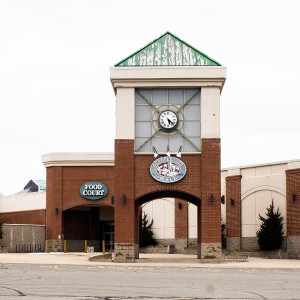 Neighboring landowner objection stalls Steeplegate redevelopment approval
Neighboring landowner objection stalls Steeplegate redevelopment approval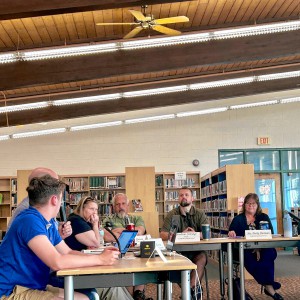 Following budget cut, Pembroke revisits future of elementary school re-build
Following budget cut, Pembroke revisits future of elementary school re-build Granite Geek: Free government software for taxes – what could go wrong? (Not much, as it turns out)
Granite Geek: Free government software for taxes – what could go wrong? (Not much, as it turns out)
